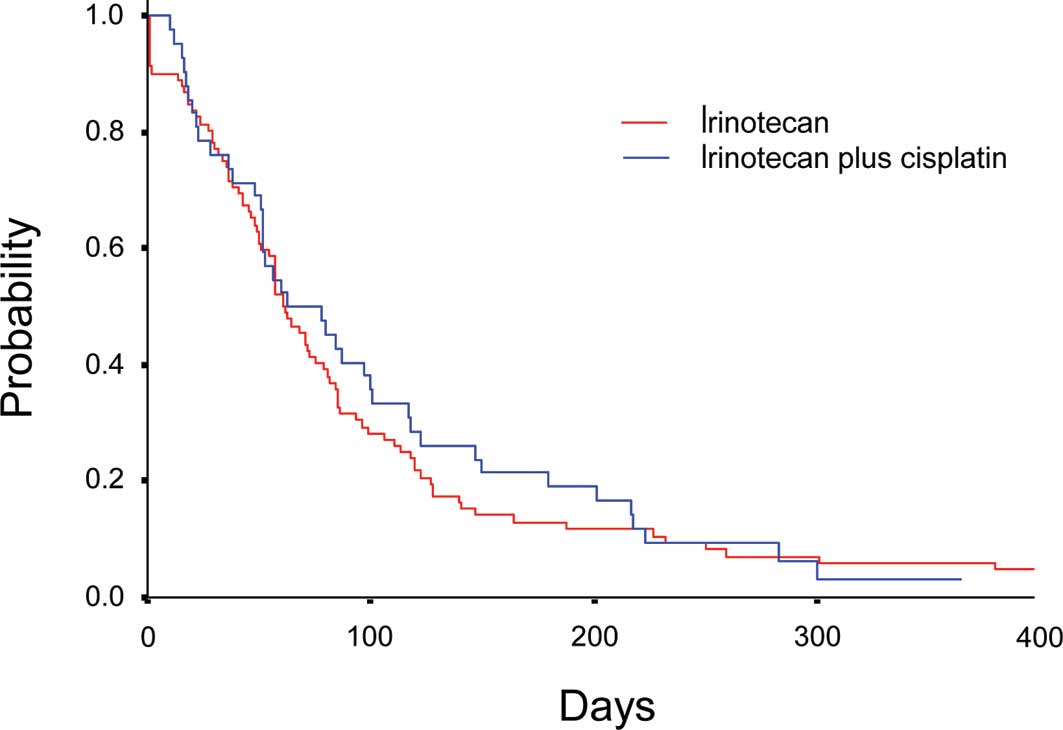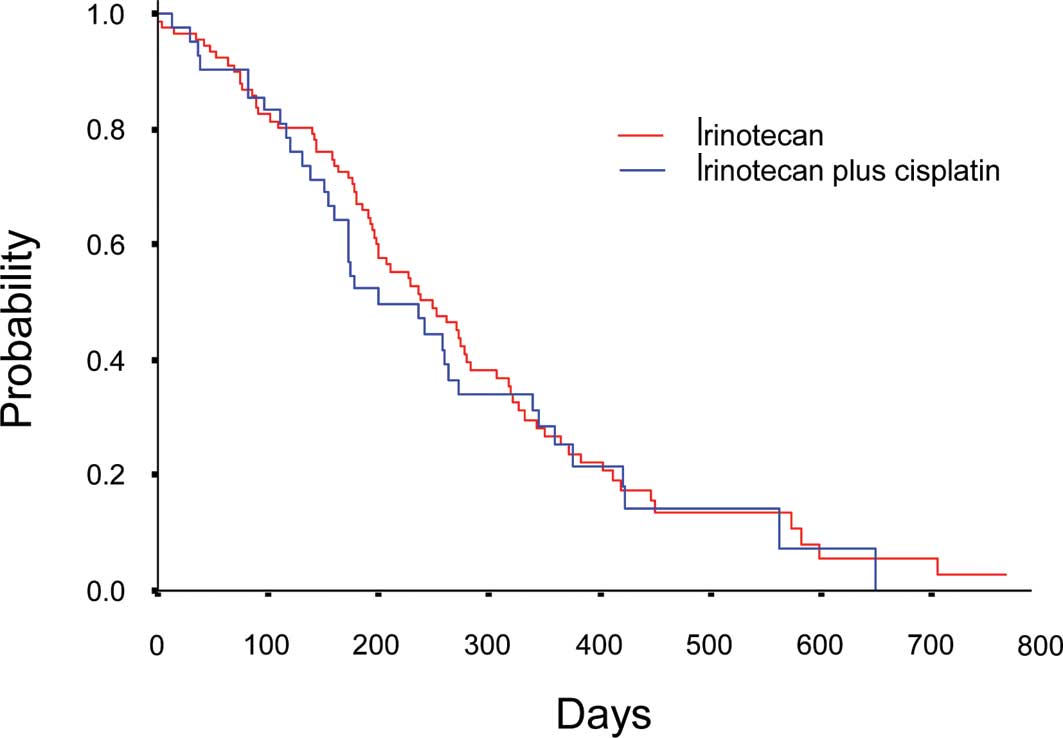Spandidos Publications style
Oba M, Chin K, Kawazoe Y, Takagi K, Ogura M, Shinozaki E, Suenaga M, Matsusaka S, Mizunuma N, Hatake K, Hatake K, et al: Irinotecan monotherapy offers advantage over combination therapy with irinotecan plus cisplatin in second-line setting for treatment of advanced gastric cancer following failure of fluoropyrimidine-based regimens. Oncol Lett 2: 241-245, 2011.
APA
Oba, M., Chin, K., Kawazoe, Y., Takagi, K., Ogura, M., Shinozaki, E. ... Hatake, K. (2011). Irinotecan monotherapy offers advantage over combination therapy with irinotecan plus cisplatin in second-line setting for treatment of advanced gastric cancer following failure of fluoropyrimidine-based regimens. Oncology Letters, 2, 241-245. https://doi.org/10.3892/ol.2011.242
MLA
Oba, M., Chin, K., Kawazoe, Y., Takagi, K., Ogura, M., Shinozaki, E., Suenaga, M., Matsusaka, S., Mizunuma, N., Hatake, K."Irinotecan monotherapy offers advantage over combination therapy with irinotecan plus cisplatin in second-line setting for treatment of advanced gastric cancer following failure of fluoropyrimidine-based regimens". Oncology Letters 2.2 (2011): 241-245.
Chicago
Oba, M., Chin, K., Kawazoe, Y., Takagi, K., Ogura, M., Shinozaki, E., Suenaga, M., Matsusaka, S., Mizunuma, N., Hatake, K."Irinotecan monotherapy offers advantage over combination therapy with irinotecan plus cisplatin in second-line setting for treatment of advanced gastric cancer following failure of fluoropyrimidine-based regimens". Oncology Letters 2, no. 2 (2011): 241-245. https://doi.org/10.3892/ol.2011.242
















